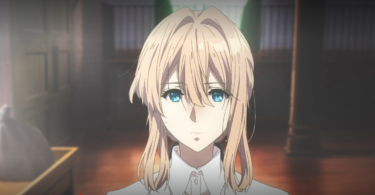Nsukka, NIGERIA – For the past year, Nsukka, a town in Enugu State in the southeastern part of Nigeria has been like home to me.
Listen to the author read this article:
It is a place that boasts of friendly dwellers who are mostly traders and subsistence farmers. As of 2022, this local government area was projected to have a population of 444,100 with a population density of 913.4 people per square kilometer.
The people of Nsukka speak the Nsukka dialect, which is a subset of the Igbo language. They are largely of the Christian faith and lead a quiet life.
A big market in this town where a good chunk of daily trading activities take place is Ogige Market. Here, market traders display their wares from which they earn a living.
But about a year ago, the state government declared the demolition of a section of the market to construct a road transport station. This act led to the displacement of many traders who lost their wares and source of livelihood.
Still, the market continues to thrive.
The major reason for Nsukka’s popularity is that it is the location of Nigeria’s first indigenous university, started by Nigerian people.

The University of Nigeria, Nsukka was founded by Nnamdi Azikiwe, the first president of Nigeria. He founded the university in 1955 and it was formally opened October 7, 1960.
With a mission “to restore the dignity of man,” the university has 17 faculties and 102 academic departments. There are three campuses in Enugu State – Nsukka, Enugu City and Ituku-Ozalla.
It also offers 108 undergraduate programs and 211 postgraduate programs.

Over the years, this citadel of learning has positioned itself as one that produces excellent students who have been “found worthy in character and learning,” playing a key role in national, economic and political development.
The university plays host to memorial artifacts, buildings and constructions that are of importance to Nigerian heritage.
The first journalism college in Africa is situated at the university. It was established in 1961 and was called the Jackson College of Journalism as a tribute to renowned journalist and activist, John Payne Jackson.

Ever since, the department which is now known as the Department of Mass Communication has been making significant contributions to the development and sustenance of ethical journalism in the country. Its students are known as Jacksonites.
Another notable structure in the university is the Nnamdi Azikiwe Library, where students study and access academic resources.

The university also has functional sporting facilities for recreation amongst students and other members of academia.
With football being a major sport in Nigeria, the university has a large football stadium known as Akanu Ibiam Stadium where students as well as teaching and non-teaching staff meet to play friendly matches and socialize.

The University of Nigeria, Nsukka is a place I hold dear. As an undergraduate student, it has provided me ample opportunity to learn, socialize and meet with great people who I can now call family.
Nsukka is not just a town, it is a home.
Chibuike Chukwuka is a Junior Reporter with Youth Journalism International.



